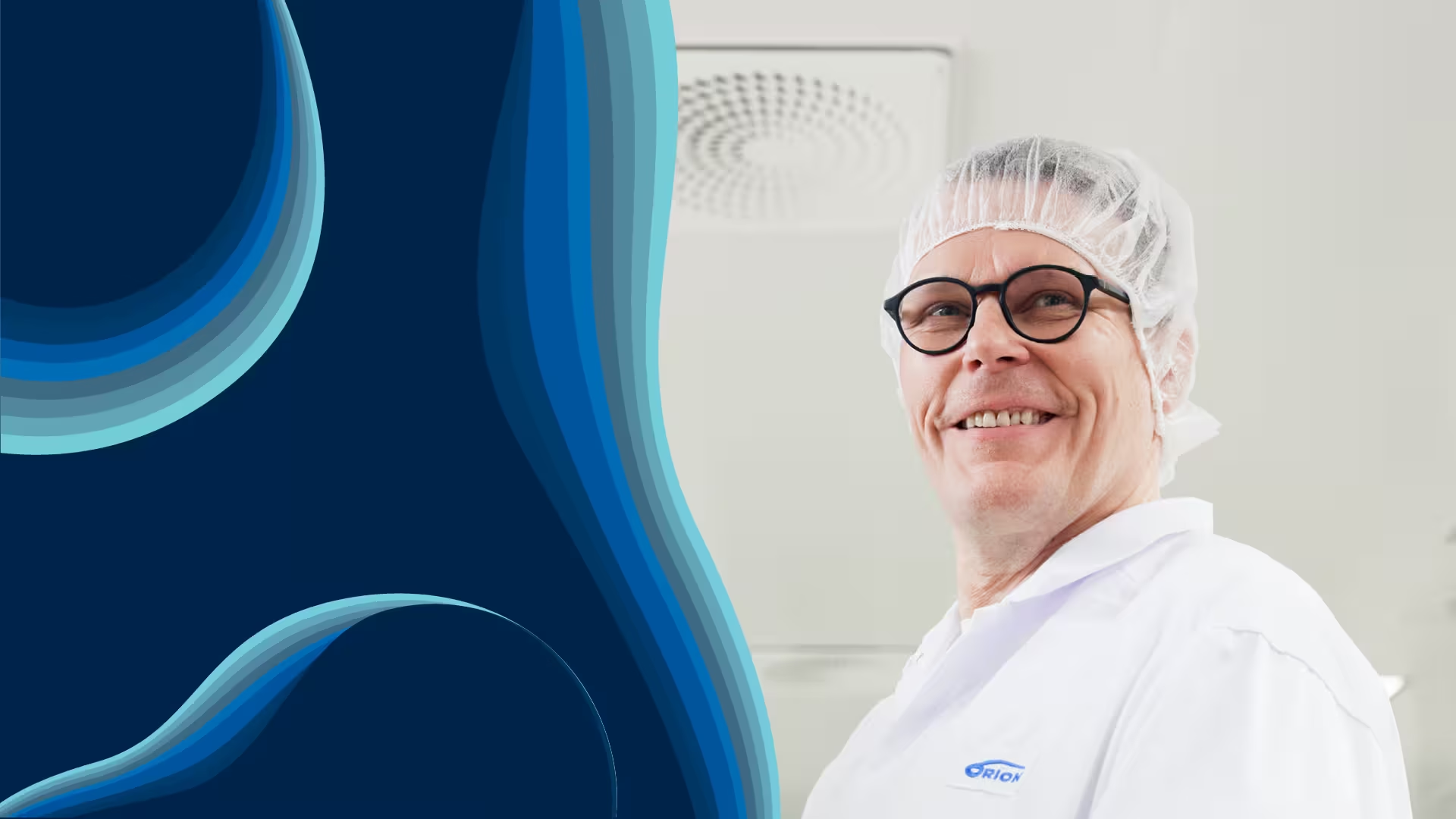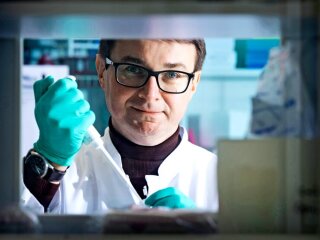“The advances in cancer research in recent years have been enormous. Drug development has benefited from modern gene sequencing techniques, among other things. Thanks to them, we can now identify the genome of cancer cells must faster and more accurately."
Julia Lindqvist leads the Cancer Genomics research group at Orion, focusing on cancer genomics. The team aims to develop new drugs using genetic information from cancer cells
"Our starting point might be a genetic defect in a cancer cell that causes the cell to divide aggressively. To respond to this, we try to create a drug molecule that targets this mechanism and prevents cancer tumour growth."
In pharmaceutical therapies, the patient's genetic make-up can also play a part. Genetic information helps develop personalised drug treatments and identify the patients who will benefit most from new treatments.
“Our work also helps make sure that the right patient gets the right medicine at the right time,” LIndqvist adds.
Enchanted by research
Julia Lindqvist received her PhD in cell biology from Åbo Akademi University in 2015. She joined Orion in 2017, initially through the PoDoCo postdoc programme, which aims to strengthen relations between the academia and the business world.
"It was great to be able to put theory into practice and be more hands-on when it comes to patients' wellbeing."
Lindqvist says that the work of a researcher is in itself extremely interesting and engaging. She enjoys learning new things and solving problems.
"What makes my job even more amazing is that my colleagues at Orion are very like-minded: enthusiastic and hungry for knowledge. Together, we develop ideas, test the molecules we create, and create different biological and biochemical models and methods."
Part of a large research network
Lindqvist says that her team members are involved in supporting drug development projects from start to finish.
“Everyone in drug development is devoted to working for the common cause and bring their unique expertise to the projects.”
The cancer genomics team has a dozen members, most of whom are biologists or biochemists. The group works closely with other cancer research groups and research departments at Orion.
Orion's partner network also includes universities, research institutes and companies in Finland and around the world.
The road from tadpoles to cancer cells
Lindqvist was fascinated by science from a very young age.
"As a little girl, I raised tadpoles and collected plants. I was also obsessed about dinosaurs and read every book I could find on the subject."
As a little girl, I raised tadpoles and collected plants.
She is inspired by the infinite diversity of nature and its constant change, evolution.
"Evolution is present in cells, people and the environment. Cancer is also an ever-changing disease – or rather, it is a series of different diseases with common features. And the more we get to know about cancers, the better we can treat them."
Drug development requires perseverance
Drug development is a long-term commitment. Only few ideas make it to the finish line and the development process can take up to ten years.
"I'm a realist and I always try to focus on the positive. In this job, failure is inevitable, but you always learn from it."
She points out that even if an idea or model developed by researchers proves unfeasible in the end, it will still have provided valuable information and contribute to future research.
I'm a realist and I always try to focus on the positive. In this job, failure is inevitable, but you always learn from it.
Lindqvist finds that Orion's strengths in this field include solid scientific expertise and an understanding of biological mechanisms.
"The company also understands the long-term nature of drug development as well as the flexibility that this work requires. We work on a number of different drug candidates simultaneously, which of course increases the chances of success. Sometimes a breakthrough can also come from looking at familiar things from a fresh perspective."
Applied research gives a broader perspective
Lindqvist’s favourite tool of the trade is the microscope.
“To see quite concretely what is happening in cells in different situations offers a wealth of information and new ideas. You just have to know how to look at the images and interpret them in the right way.”
She says that it is practical, applied research, rather than simply collecting and analysing information from different sources, that helps us to understand the subject more deeply.
"There's a huge amount of data available, almost more than we can handle. I am particularly keen to ensure that we select the right data and use it optimally."
The research question ultimately determines which technique is used at any given time.
"Researchers' ideas form the key starting point for our work. But as soon as the research ideas move on to the level of practical work in the laboratory, automation and robotics also have their place.”
As soon as the research ideas move on to the level of practical work in the laboratory, automation and robotics also have their place.
A researcher will always stop and look
In her free time, Lindqvist relaxes with audio books and music, among other things. She is also interested in molecular gastronomy.
“I want to learn more about what happens to ingredients during different methods of cooking and how this affects the flavour and texture.”
Exercise also offers respite from work. Julia’s favourite sports include trail running.
"But yes, every now and then when I'm running, I have to stop if there's an interesting plant along the path. I want to take a closer look. I never quite stop being a researcher!” Lindqvist chuckles.










